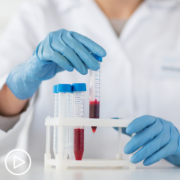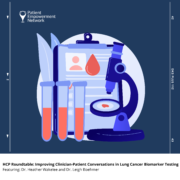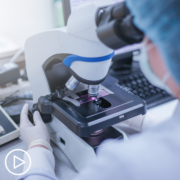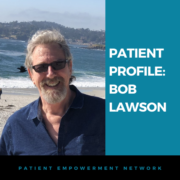How Can You Access Personalized Medicine for Gastric Cancer?
How Can You Access Personalized Medicine for Gastric Cancer? from Patient Empowerment Network on Vimeo.
What is the right therapy for your gastric cancer? This animated video reviews treatment decision considerations, how results of essential testing may impact therapy, and advice for engaging in your gastric cancer care.
See More From INSIST! Gastric Cancer
Related Programs:

|

|

How Do Biomarker Test Results Impact a Gastric Cancer Treatment Plan? |
Transcript:
Advances in gastric cancer research are leading to more targeted treatments and giving patients access to personalized care. Personalized medicine – or precision medicine – is a type of care that is based on the genetic makeup and individual characteristics of your disease.
Biomarker testing identifies key markers such as genes, proteins, or other molecules in a sample of tissue, blood, or other bodily fluid. The test results help the healthcare team better understand your cancer and may influence treatment options – leading to more tailored options with potentially fewer side effects.
For example, if the PD-L1 receptor is detected during biomarker testing, you may benefit from immunotherapy. The tumor’s HER-2 status or mismatch repair protein expression status may indicate that you may respond well to a targeted therapy. And, treatment targets continue to be identified as research moves forward.
When deciding on a treatment approach, physicians may consider factors such as:
- Your age, overall health, and any pre-existing conditions.
- Your type and stage of gastric cancer.
- And your test results, including biomarker testing.
So, how can you partner with your doctor to guide a personalized treatment approach for YOUR gastric cancer?
- First, seek a gastric cancer specialist to lead your care. A second opinion consultation with a specialist can confirm your diagnosis and treatment plan.
- Ask your doctor if you have had, or will receive, all essential testing, including biomarker testing, and discuss if there are any markers that impact your risk, prognosis, or treatment options.
- Inquire about clinical trial options suited to your specific cancer and biomarker test results.
- Discuss the potential side effects of each treatment option and ask if any of your existing health conditions may impact your choices.
- Include a care partner, such as a friend or loved one – someone you trust – in discussions, so you can feel confident in your decisions.
- And finally, always speak up and ask questions. Remember, you have a voice in YOUR gastric cancer care.
To learn more about your gastric cancer and to access tools for self-advocacy, visit powerfulpatients.org/gastric.










